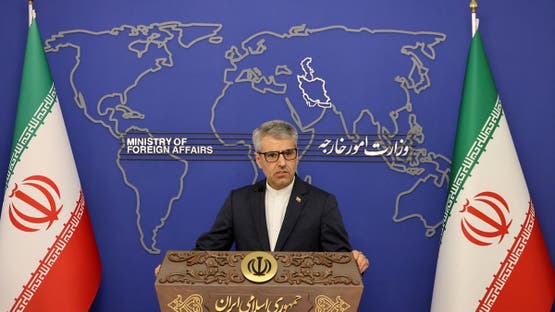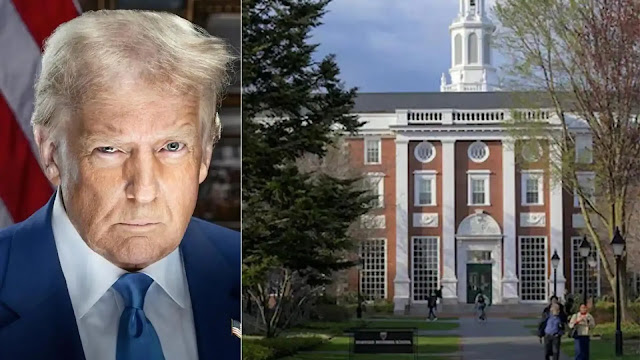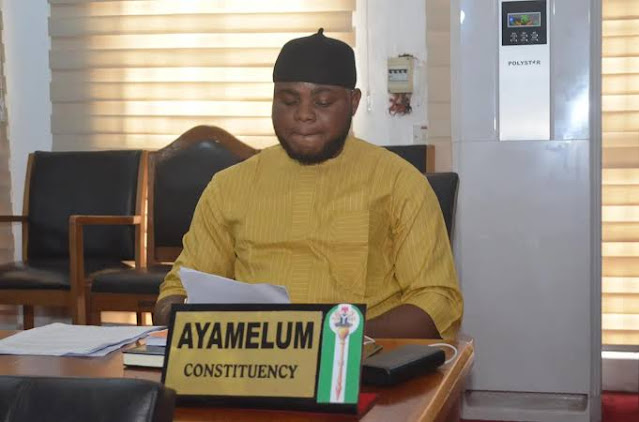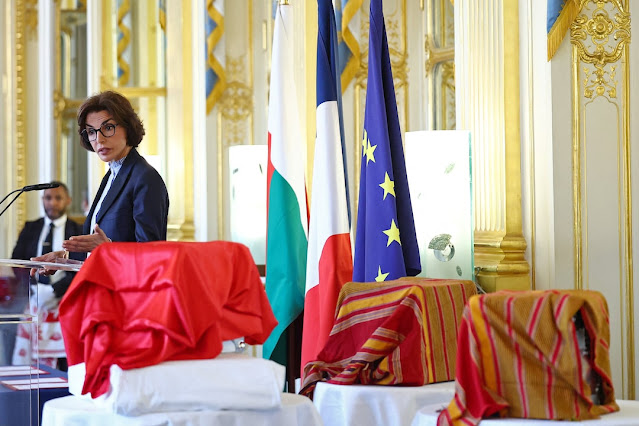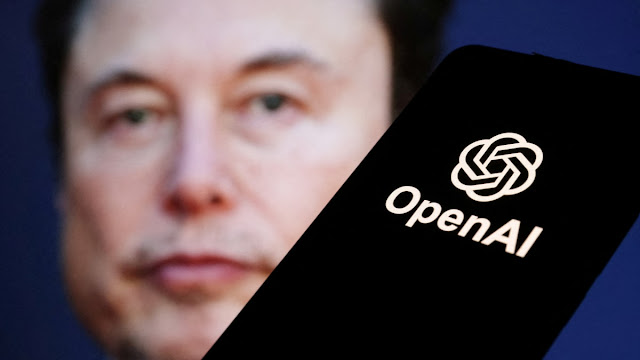Canberra, Australia – August 26, 2025 – In a dramatic escalation of diplomatic tensions, Australia has expelled Iran’s ambassador to Canberra, Ahmad Sadeghi, and three other Iranian officials, accusing Tehran of orchestrating antisemitic arson attacks in Sydney and Melbourne in late 2024. The unprecedented move, announced by Australian Prime Minister Anthony Albanese on Tuesday, marks the first time since World War II that Australia has expelled a foreign ambassador. Iran swiftly rejected the allegations, with its foreign ministry vowing “reciprocal action” in response, raising fears of further strain on bilateral relations and broader implications for regional diplomacy.
A Historic Diplomatic Rupture
The Australian government’s decision to declare Ambassador Sadeghi “persona non grata” and order his departure within seven days, alongside the suspension of operations at Australia’s embassy in Tehran, represents a significant break in diplomatic relations between the two nations. The move comes in response to what Australia claims is “credible intelligence” linking Iran to two high-profile arson attacks targeting Jewish institutions in Australia: the torching of Lewis’ Continental Kitchen, a kosher café in Sydney’s Bondi suburb, on October 10, 2024, and a devastating fire at the Adass Israel Synagogue in Melbourne on December 6, 2024. Both incidents caused significant property damage but, fortunately, no injuries.
Prime Minister Albanese, speaking at a press conference in Canberra flanked by Foreign Minister Penny Wong, Home Affairs Minister Tony Burke, and Australian Security Intelligence Organisation (ASIO) Director-General Mike Burgess, described the attacks as “extraordinary and dangerous acts of aggression orchestrated by a foreign nation on Australian soil.” He accused Iran’s Islamic Revolutionary Guard Corps (IRGC) of directing the attacks through a complex network of intermediaries, including local criminals and organized crime gangs, to undermine Australia’s social cohesion and sow discord.
“These were attempts to tear at the fabric of our society, targeting Jewish Australians and their sacred places of worship,” Albanese said. “This is totally unacceptable, and the Australian government is taking strong and decisive action in response.” In addition to expelling the Iranian diplomats, Albanese announced that Australia would move to designate the IRGC as a terrorist organization, a step already taken by the United States and Canada. The designation, which requires legislative approval, would make it a crime to provide support to the IRGC, further isolating Iran on the international stage.
Australia’s embassy in Tehran, operational since 1968, has been effectively shuttered, with all Australian diplomats relocated to a third country for their safety. Foreign Minister Wong emphasized that the decision to suspend embassy operations was made to protect Australian staff, noting that Canberra would maintain limited diplomatic channels with Tehran to advance national interests. She also issued a stark warning to Australians in Iran, urging them to leave the country immediately if safe to do so, and advised against travel to Iran due to the heightened risk of arbitrary detention.
Iran’s Defiant Response
Iran’s foreign ministry wasted no time in rejecting Australia’s accusations, labeling them “baseless” and “ridiculous.” Speaking at a weekly press briefing in Tehran on Tuesday, Foreign Ministry Spokesman Esmail Baqaei dismissed the claims of Iranian involvement in the arson attacks and warned that “any inappropriate and unjustified action on a diplomatic level will have a reciprocal reaction.” Baqaei suggested that Australia’s actions were driven by domestic political pressures, particularly widespread protests against Israel’s ongoing war in Gaza, which have intensified in Australia since October 2023.
“It seems that this action is taken in order to compensate for the limited criticism the Australian side has directed at the Zionist regime,” Baqaei told reporters, referring to Israel. He accused Canberra of aligning itself with Israel to appease domestic critics, particularly in light of Australia’s recent decision to recognize a Palestinian state, a move that has strained relations with Israel. Baqaei’s remarks reflect Iran’s broader narrative of framing Western actions against it as part of a pro-Israel agenda, a stance that has long shaped Tehran’s foreign policy.
Iran’s promise of “reciprocal action” has raised concerns about potential retaliatory measures, such as the expulsion of Australian diplomats or further restrictions on Australian citizens in Iran. The Iranian embassy in Canberra did not immediately respond to requests for comment, but the country’s state news agency, IRNA, reported that officials in Tehran were reviewing the situation to determine an appropriate response.
The Arson Attacks: A Disturbing Pattern
The two incidents at the heart of the diplomatic row have shaken Australia’s Jewish community, which has faced a surge in antisemitic attacks since the onset of the Israel-Hamas war in October 2023. The first attack occurred on October 10, 2024, when Lewis’ Continental Kitchen, a kosher restaurant in Sydney’s Bondi suburb that had served the community for over 50 years, was set ablaze. The fire gutted the establishment, causing millions of dollars in damage. Initially, police did not classify the incident as a targeted attack, but subsequent investigations by ASIO uncovered evidence linking it to foreign actors.
The second attack, on December 6, 2024, targeted the Adass Israel Synagogue in Melbourne’s Ripponlea suburb, a sacred space built by Holocaust survivors in the 1960s. Two masked assailants were seen throwing liquid into the synagogue before setting it alight, forcing worshippers to flee as flames engulfed the building. The attack, described by police as a “likely terrorist incident,” caused extensive damage and sent shockwaves through Australia, a country known for its relative social harmony.
ASIO’s months-long investigation, described by Director-General Burgess as “painstaking,” concluded that the IRGC orchestrated the attacks through a “layer cake of cut-outs”—intermediaries who obscured Iran’s direct involvement. Burgess emphasized that no Iranian diplomats in Australia were implicated, but the attacks were directed by the IRGC’s Quds Force, its clandestine foreign intelligence and paramilitary wing. “This was directed by the IRGC through a series of overseas cut-out facilitators to coordinators that found their way to tasking Australians,” Burgess said, noting that local criminals, including members of organized crime gangs, were likely hired to carry out the attacks.
The Australian government also believes Iran may be behind additional antisemitic incidents in the country, though Burgess stressed that not all such acts could be attributed to Tehran. The rise in antisemitic vandalism and attacks on Jewish schools, homes, and vehicles since October 2023 has coincided with a parallel increase in Islamophobic incidents, as reported by the Islamophobia Register, which recorded a 500% surge in anti-Muslim incidents in workplaces, universities, and media.
Domestic and International Reactions
The expulsion of Iran’s ambassador has drawn widespread support within Australia, particularly from the Jewish community and political leaders across the spectrum. Daniel Aghion, president of the Executive Council of Australian Jewry, described the attacks as “an attack on Australia’s sovereignty” that “deliberately targeted Jewish Australians, destroyed a sacred house of worship, caused millions of dollars of damage, and terrified our community.” He expressed cautious optimism about the government’s response, noting that it provided “some solace” but underscored the anxiety felt by Jewish Australians targeted by a “ruthless and violent foreign force.”
The Australian Iranian Community Organisation (AUSIRAN), which campaigns against the Iranian regime, welcomed the expulsion and the move to designate the IRGC as a terrorist organization. “Over the years, members of our community have submitted multiple complaints raising concerns about harassment and intimidation linked to the ambassador and his office,” said AUSIRAN president Siamak Ghahreman. “His expulsion is a necessary step for our safety and dignity.”
Political leaders, including Opposition Leader Sussan Ley, Victorian Premier Jacinta Allan, and NSW Premier Chris Minns, also backed the government’s actions. Ley called the revelations “one of the most egregious acts of foreign interference against our nation,” while Allan described the synagogue attack as “an attack on all Victorians.” Israel’s embassy in Canberra praised the move, stating on social media that “Iran’s regime is not only a threat to Jews or Israel, it endangers the entire free world, including Australia.”
Internationally, the expulsion has raised concerns about the broader implications for diplomatic relations in the Middle East. Iran’s vow of reciprocal action could further destabilize an already volatile region, particularly as tensions between Iran and Western nations remain high following the U.S. bombing raids on Iran earlier this year and the ongoing Israel-Hamas conflict. The closure of Australia’s embassy in Tehran, coupled with Iran’s potential retaliation, could limit diplomatic channels at a time when dialogue is critical to addressing regional challenges.
A Strained Relationship with Israel
Australia’s decision to expel Iran’s ambassador comes amid strained relations with Israel, which have been exacerbated by Canberra’s recognition of a Palestinian state on August 11, 2025. The move, formalized ahead of the United Nations General Assembly in September, followed mass protests across Australia calling for peace and aid deliveries to Gaza, where the conflict has resulted in over 62,000 deaths, according to Palestinian authorities. Israel responded by revoking the visas of Australian diplomats to the Palestinian Authority, a tit-for-tat action that underscored the delicate balancing act Australia faces in navigating Middle Eastern geopolitics.
Mark Kenny, director of the Australian Studies Institute at the Australian National University, suggested that Albanese’s actions against Iran may be partly motivated by a desire to counter criticism from Israel and its supporters. “Netanyahu’s rhetoric has put pressure on the government here, because there is a strong Jewish community in Australia,” Kenny told Al Jazeera. “I think there is an element here of the government wanting to appear strong and decisive.”
Legal and Security Implications
The designation of the IRGC as a terrorist organization, if passed by Australia’s parliament, would align Canberra with Washington and Ottawa, which have already blacklisted the group. The IRGC, established after Iran’s 1979 revolution to defend the Islamic regime, has grown into a powerful political and military force with an estimated 190,000 personnel. Its Quds Force is accused by Western nations of orchestrating attacks abroad, often through proxies, to target dissidents and Israeli interests.
In Australia, the terrorist designation would enhance ASIO’s ability to monitor and disrupt IRGC-linked activities, but it could also complicate relations with Iran’s 90,000-strong diaspora community. Home Affairs Minister Tony Burke urged Australians not to blame Iranian-Australians for the actions of the regime, warning that such division is precisely what the attacks were designed to provoke.
Looking Ahead: A Fragile Diplomatic Landscape
As Australia and Iran exchange diplomatic salvos, the international community is closely watching the fallout. The expulsion of Ambassador Sadeghi and the closure of Australia’s embassy in Tehran mark a low point in bilateral relations, which had been maintained despite previous tensions, including Iran’s harassment of Iranian-Australian dissidents and Australia’s sanctions on Tehran in 2024. Iran’s promised “reciprocal action” could take various forms, from expelling Australian diplomats to imposing restrictions on Australian businesses or citizens in Iran.
For Australia, the decision to take such a hardline stance reflects a broader commitment to combating foreign interference and protecting its multicultural society. However, it also risks further isolating Iran at a time when diplomatic engagement could be crucial to addressing regional conflicts. As the situation unfolds, the world waits to see how Iran will respond and whether this diplomatic crisis will escalate into a broader confrontation with far-reaching consequences.
Conclusion
The expulsion of Iran’s ambassador from Australia over alleged antisemitic arson attacks represents a bold and unprecedented move by the Albanese government, signaling a zero-tolerance approach to foreign interference. Iran’s rejection of the accusations and its vow of retaliation have set the stage for a tense standoff, with potential ramifications for regional diplomacy and the safety of foreign missions. As Australia navigates this crisis, the resilience of its multicultural society and the strength of its institutions will be tested, while the international community braces for the next chapter in this unfolding diplomatic drama.


